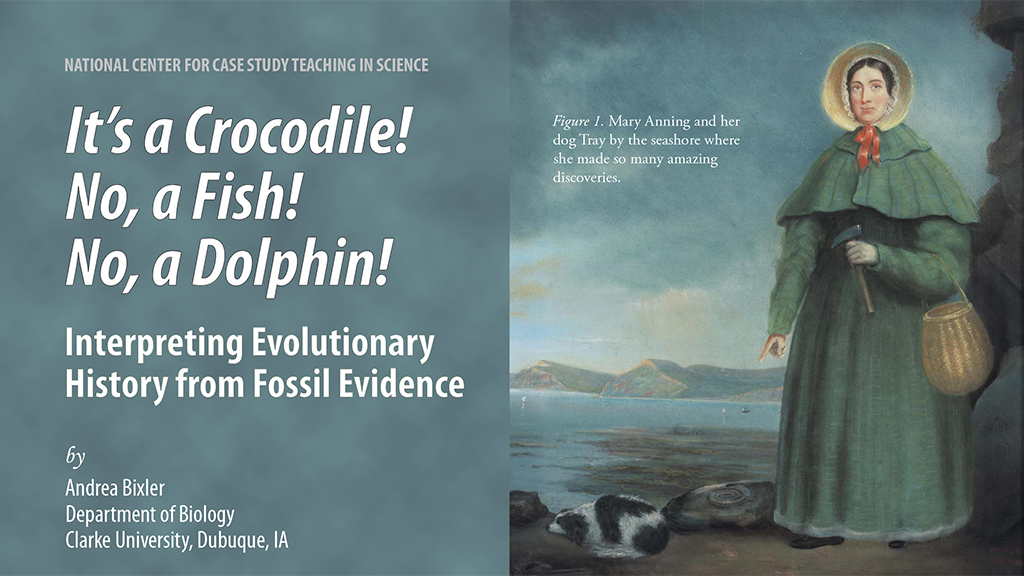Abstract
It is not uncommon to hear creationists argue that evolution is not science because no one saw it happen, or for students to wonder how we can know anything about the physiology or behavior of organisms that went extinct hundreds of millions of years ago. This case study, designed to complement the typical teaching of the scientific method that focuses on experimentation, emphasizes how much we can learn from observations. Starting from a mystery fossil that was collected by historical figure Mary Anning, students are presented with an array of comparative evidence to help them determine whether the organism was a crocodile, a fish, a dolphin, or something else. This case would be appropriate for an introductory majors biology course, particularly one in which evolution is covered. It is taught in the flipped format, with videos on the scientific method and fossil evidence to provide students with background prior to starting the in-class work. Students then work in groups to evaluate the evidence presented.



